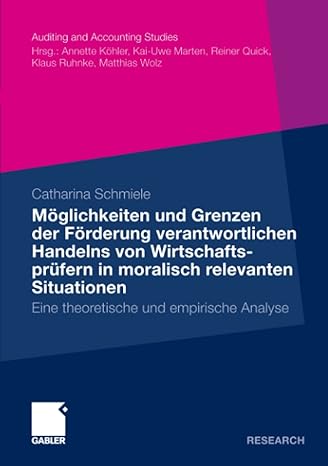Question
Personal and corporate tax Question 1 Which one of the following would be considered employment income for Canadian income tax purposes? Question 1 options: 1)
Personal and corporate tax
Question 1
Which one of the following would be considered employment income for Canadian income tax purposes?
Question 1 options:
1) A private health services plan premium paid by your employer.
2) An all-expense-paid trip to Europe provided to you by a supplier of your company for reaching a sales quota.
3) Amounts paid by your employer for counselling services in respect of mental and physical health.
4) Benefits paid by your employer to a deferred profit sharing plan that does not pay out until 2024.
Question 2
Bill is the CEO of ABC Ltd. Bill takes his wife, Mary, on a three-day convention. Mary represents ABC Ltd. at the convention, and hands out brochures and gives a talk on motivational speeches, but she is not an employee of Bill's company. Which of the following statements is true for 2018?
Question 2 options:
1) No employee benefits will be added to either Bill's or Mary's income since Mary was primarily engaged in business activities on behalf of Connection Ltd.
2) Fifty per cent of the trip's cost for Mary would be added to Bill's employment income because she is not an employee of the company.
3) The cost of the hotel for Bill's wife would be added to Bill's employment income because she is not an employee of the company; thus, a personal benefit was received.
4) The cost of the trip for Mary would be added to her personal tax return as employment income even though she is not a regular employee of the company.
Question 3
Which of the following is a taxable benefit?
Question 3 options:
1) Uniforms and special clothing
2) Employer's contribution to a Registered Pension Plan
3) Free meals while working
4) Retirement counselling
Question 4
Mu is provided with a vehicle to perform her duties. During the current year, she drove 5,000 kilometres personally and 15,000 kilometres for employment purposes. Her employer pays for 100% of the operating expenses. In the computation of her employment income she must:
Question 4 options:
1) Recognize a standby charge benefit and an operating benefit in her income.
2) Recognize an operating benefit only because the vehicle was driven substantially for employment purposes.
3) Recognize a standby charge benefit, based on the proportion of personal kilometres driven in relation to her total kilometres driven.
4) Recognize a reduced standby charge benefit and an operating benefit based on the personal kilometres driven.
Question 5
Which of the following is a taxable benefit?
Question 5 options:
1) Subsidized meals offered to all employees of the company assuming the price is approximately equal to the cost.
2) Payment of the tuition for an employee completing a degree that will benefit the employer.
3) A 20% discount on the cost of a newly constructed house.
4) A Christmas gift to an employee from the employer valued at $450.
Question 6
Which of the following statements is true regarding employment income?
Question 6 options:
1) All allowances and reimbursements received are taxable.
2) Some allowances are taxable but no reimbursements received are taxable.
3) All allowances and some reimbursements are taxable.
4) Some allowances and some reimbursements are taxable.
Question 7
Sandy is given the choice to receive a pay raise, either as a salary increase of $7,200 or as a benefit of a company leased car that will cost her employer $600 per month to rent, including HST. Sandy has come to you for advice so that she can minimize her employment income and thereby minimize her taxes. Which of the following statements is true?
Question 7 options:
1) Sandy should accept the salary.
2) Sandy should be indifferent between the two choices.
3) Sandy should ask her employer to lease a cheaper car and then pay the difference between the monthly leasing costs as part of her salary.
4) Sandy should accept the leased automobile.
Question 8
Which of the following statement is true?
Question 8 options:
1) Salespeople cannot deduct any expenses that exceed their commission income.
2) Home office expenses for insurance and property taxes can be deducted under ITA s.8(1)(f).
3) When calculating employment income for a salesperson, ITA s.8(1)(f) must be used.
4) Mortgage interest and CCA on a salespersons' home office are deductible up to a maximum of the salesperson's commission income.
Question 9
Which of the following items are considered taxable employment benefits?
i.Employer contributions to a RPP
ii.Employer contributions to a private health care plan
iii.Employer paid premiums to a term life insurance plan
iv.Employer contributions to a DPSP.
Question 9 options:
1) i and iv only
2) iii only
3) i only
4) iii and iv only
Question 10
Mark is a commission based sales person. His primary work is away from the head office. Mark's employers signed a T2200 form certifying that no reimbursements are paid for any expenses Mark incurs to earn commissions. Mark incurs the following expenses, exclusively for business use:
Meals and Entertainment 15,000
Fuel 5,000
Insurance 1,000
Repairs 1,500
Lease on Car 500/month
What are Mark's deductible employment expenses?
Question 10 options:
1) 10,000
2) 15,250
3) 21,000
4) 28,500
Step by Step Solution
There are 3 Steps involved in it
Step: 1

Get Instant Access to Expert-Tailored Solutions
See step-by-step solutions with expert insights and AI powered tools for academic success
Step: 2

Step: 3

Ace Your Homework with AI
Get the answers you need in no time with our AI-driven, step-by-step assistance
Get Started


